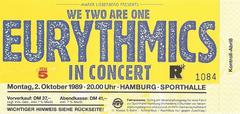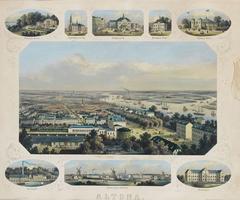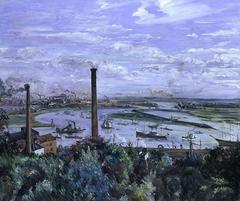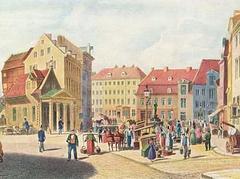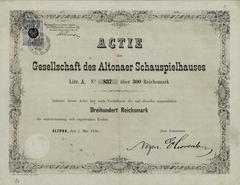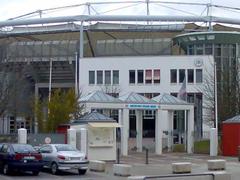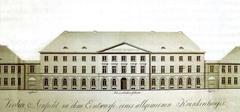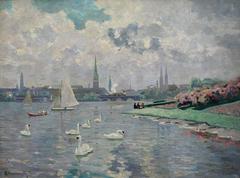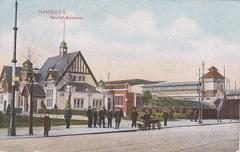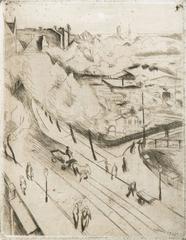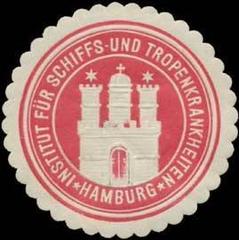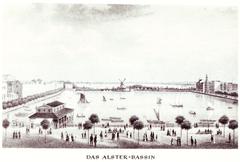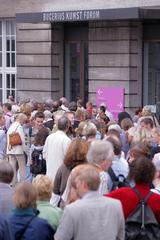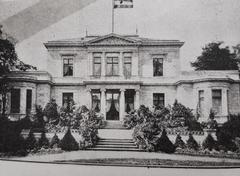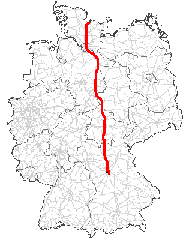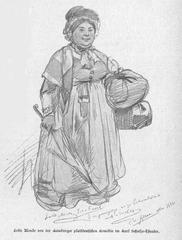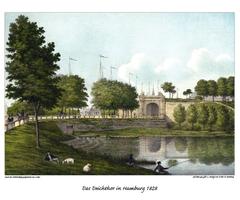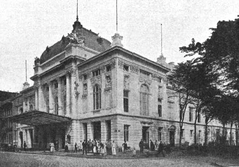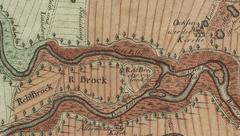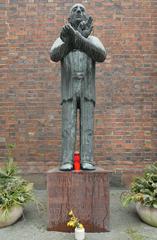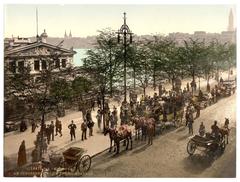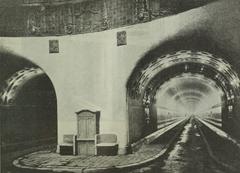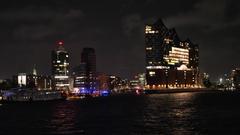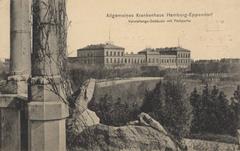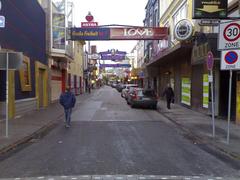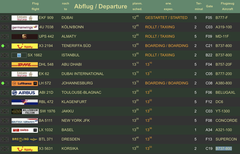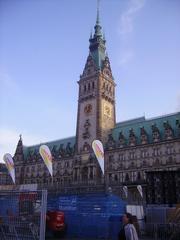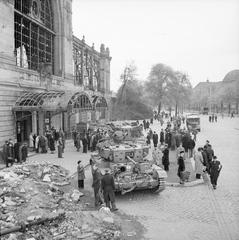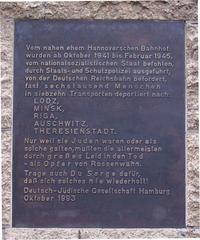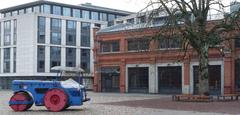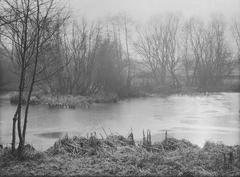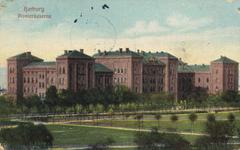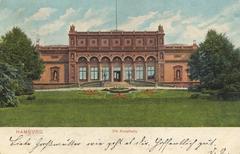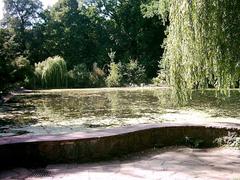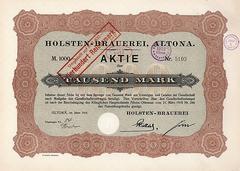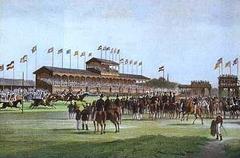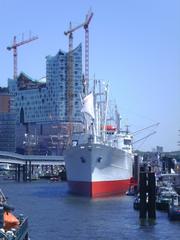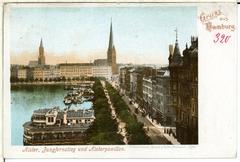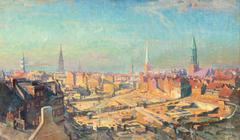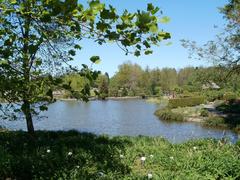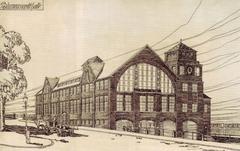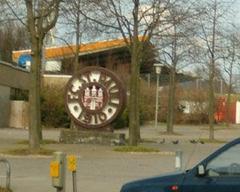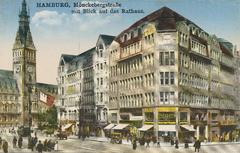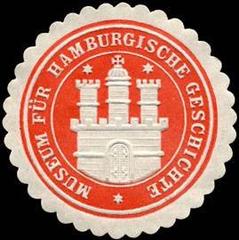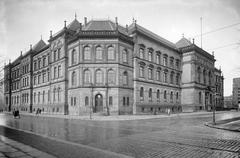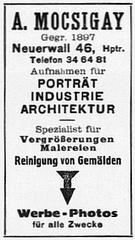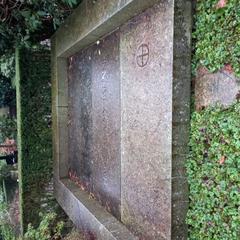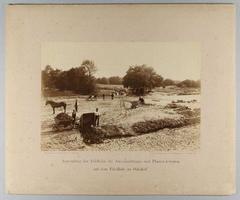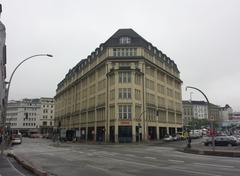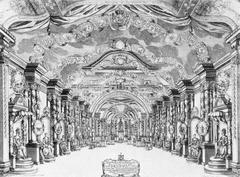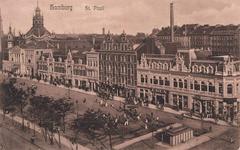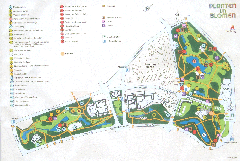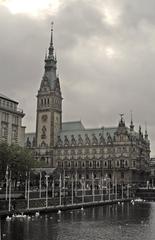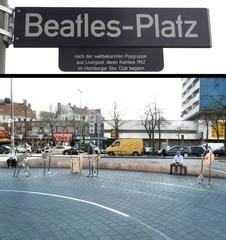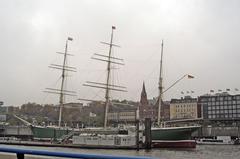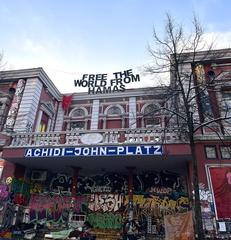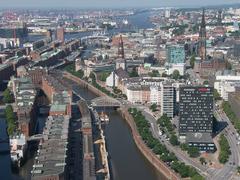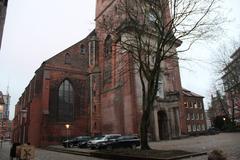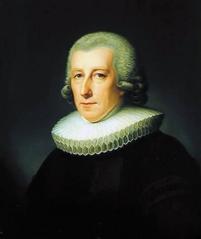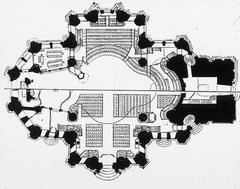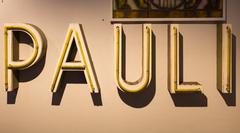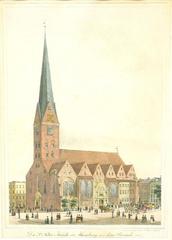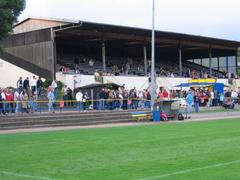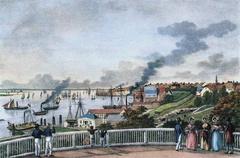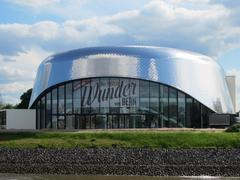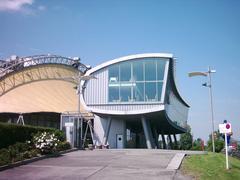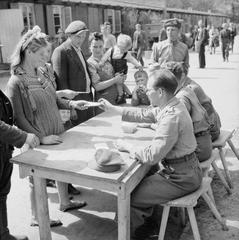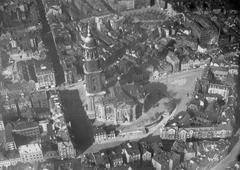Islamic Centre Hamburg: Visiting Hours, Tickets, and Historical Significance
Date: 14/06/2025
Introduction
Nestled on the banks of Hamburg’s Alster Lake, the Islamic Centre Hamburg (Islamisches Zentrum Hamburg, IZH)—often referred to as the Imam Ali Mosque or “Blue Mosque”—has long served as a prominent religious, architectural, and cultural landmark in the city. Established in the early 1960s by Iranian expatriates, the Centre was envisioned as a spiritual and communal base for Shiite Muslims, growing into a vital hub for interfaith dialogue, cultural exchange, and social support within Hamburg’s multicultural landscape. Its distinctive blue-tiled dome and minarets not only shape the city’s skyline but also reflect centuries-old Persian Islamic architectural traditions, harmonized with modern European influences (DER SPIEGEL; Islamic Architectural Heritage).
Beyond its role as a place of worship, the Centre has historically provided educational programs, social services, and interfaith initiatives, contributing to Hamburg’s reputation for religious tolerance and social cohesion. However, its political associations and controversies eventually led to a government ban in July 2024, highlighting the challenges faced by multicultural institutions in contemporary Germany (AP News; Library of Congress).
This comprehensive guide explores the Islamic Centre Hamburg’s history, architectural features, visitor information—including opening hours, tickets, accessibility, and nearby attractions—and its complex cultural legacy.
Table of Contents
- Introduction
- Historical Overview
- Architectural and Cultural Significance
- Visiting the Islamic Centre Hamburg
- Frequently Asked Questions (FAQ)
- Conclusion
- References
Historical Overview
Founding and Early Development
The Islamic Centre Hamburg was founded in 1962 by Iranian expatriates and students as a religious and cultural hub for Muslims, particularly Shiite communities, in Germany and neighboring countries (DER SPIEGEL). The choice of location—on Alster Lake—was intentional, symbolizing both visibility and the intention to integrate with Hamburg’s diverse society. The mosque, completed in 1965, became instantly recognizable for its blue-tiled dome and minaret.
Community Role and Expansion
From the 1980s onward, the Centre broadened its activities, offering Friday prayers, Quranic instruction, cultural festivals, and social support for immigrants. It also became a key venue for interfaith dialogue and academic events, fostering community cohesion and religious education within Hamburg (Mapcarta).
Political and Legal Challenges
Following the Iranian Revolution in 1979, the Centre maintained close ties with Iran, functioning as a religious and cultural extension of the Iranian state. German authorities monitored its activities, expressing concerns about its political influence and alleged links to extremist organizations (AP News). Despite ongoing scrutiny, the Centre denied political involvement, emphasizing its religious and cultural mission.
2024 Closure
In July 2024, German authorities banned the IZH and its affiliated organizations, citing the promotion of extremist ideology and alleged support for Hezbollah. The closure followed police raids and was justified as a move to protect constitutional order and public security (Library of Congress; Al Jazeera). The decision was met with both support and criticism, reflecting the Centre’s complex role in Germany’s social and political landscape.
Architectural and Cultural Significance
The Imam Ali Mosque, known as Hamburg’s “Blue Mosque,” exemplifies the integration of Persian Islamic design and modern European aesthetics. Designed by Schramm and Elingius Architects, it features a blue-tiled dome and two slender minarets, which have become iconic elements of Hamburg’s skyline (Islamic Architectural Heritage; Hamburg Travel).
Architectural Highlights:
- Iwan Entrance: The grand, vaulted entrance hall pays homage to Persian religious architecture.
- Mosaic Tiles: Extensive use of vibrant blue, green, and gold mosaics depicts intricate floral and geometric patterns.
- Natural Light: Stained-glass windows illuminate the prayer hall, highlighting the mihrab and minbar adorned with calligraphy.
- Gardens and Courtyards: Landscaped areas echo Islamic paradise garden traditions, offering a tranquil retreat by the lake.
The mosque not only serves religious functions but also hosts cultural events, interfaith discussions, and maintains a multilingual library, reinforcing its importance as a community and educational center (Islamic Architectural Heritage).
Visiting the Islamic Centre Hamburg
Visiting Hours
Before closure in July 2024, the Centre’s regular visiting hours were:
- Monday to Friday: 9:00 AM – 6:00 PM (Friday prayers: 1:00 PM – 3:00 PM)
- Saturday and Sunday: Open for special events or by appointment
Extended hours were observed during Ramadan and Islamic holidays. Due to the 2024 closure, prospective visitors should verify the current status before planning a visit.
Admission and Tickets
- Entry: Free for all visitors
- Donations: Welcomed to support community activities and maintenance
- Guided Tours: Available by advance booking, often during Open Mosque Day or cultural festivals. Some tours may require a nominal fee.
Accessibility
- Wheelchair Access: The Centre is equipped with ramps and wide entrances for visitors with mobility needs.
- Facilities: Multipurpose rooms, library, and prayer hall are accessible.
Visitor Etiquette: Modest dress is required (arms and legs covered; women advised to bring a headscarf), and shoes must be removed before entering prayer areas (Blue Mosque Dress Code Guide).
Travel Tips
- Address: Alsterufer 15, Hamburg
- Public Transport: Easily accessible via Hamburg’s U-Bahn (Lohmühlenstraße station) and city buses
- Photography: Allowed in designated areas; always be respectful and seek permission for photographing individuals or religious ceremonies
Nearby Attractions
The Centre’s location by Alster Lake offers picturesque views and proximity to several key Hamburg landmarks, such as:
- Alster Lake promenade
- Hamburg Kunsthalle (art museum)
- Planten un Blomen park
- Speicherstadt warehouse district
- St. Michael’s Church
Frequently Asked Questions (FAQ)
Q: Is the Islamic Centre Hamburg open to non-Muslim visitors?
A: Yes, the Centre has historically welcomed visitors of all backgrounds interested in architecture and Islamic culture.
Q: Are there entrance fees or ticket requirements?
A: Admission is free; donations are appreciated. Guided tours may require advance booking and a small fee.
Q: Can I attend Friday prayers as a visitor?
A: Non-Muslim visitors may attend respectfully. Arrive early and observe the dress code.
Q: Is the mosque accessible for people with disabilities?
A: Yes, with ramps and wide entrances.
Q: Are guided tours available?
A: Guided tours are offered during special events and by prior arrangement.
Conclusion
The Islamic Centre Hamburg has been a cornerstone of religious, cultural, and architectural life in Hamburg, bridging Eastern and Western traditions. Its role in fostering interfaith understanding, community support, and educational outreach has left a lasting legacy. While the Centre’s 2024 closure marks a significant moment in its history, the surrounding area and the story of the Blue Mosque continue to offer insights into Hamburg’s commitment to diversity and cultural heritage.
Before visiting, verify the Centre’s status. Meanwhile, the Alster Lake and nearby attractions provide ample opportunities to explore Hamburg’s historical landscape.
For further information, download the Audiala app, explore related articles on Hamburg’s historical sites, and follow our social channels for updates and guided tour options.
References
- DER SPIEGEL: The Long Arm of the Mullahs
- AP News: Germany bans Islamic Centre Hamburg
- Mapcarta: Islamic Centre Hamburg Location
- Islamic Architectural Heritage: Islamic Centre Hamburg
- Hamburg Travel: Imam Ali Moschee
- Library of Congress: Germany Ministry of the Interior bans and dissolves Islamic Centre Hamburg
- Al Jazeera: Germany bans Muslim group citing extremism ties to Iran and Hezbollah
